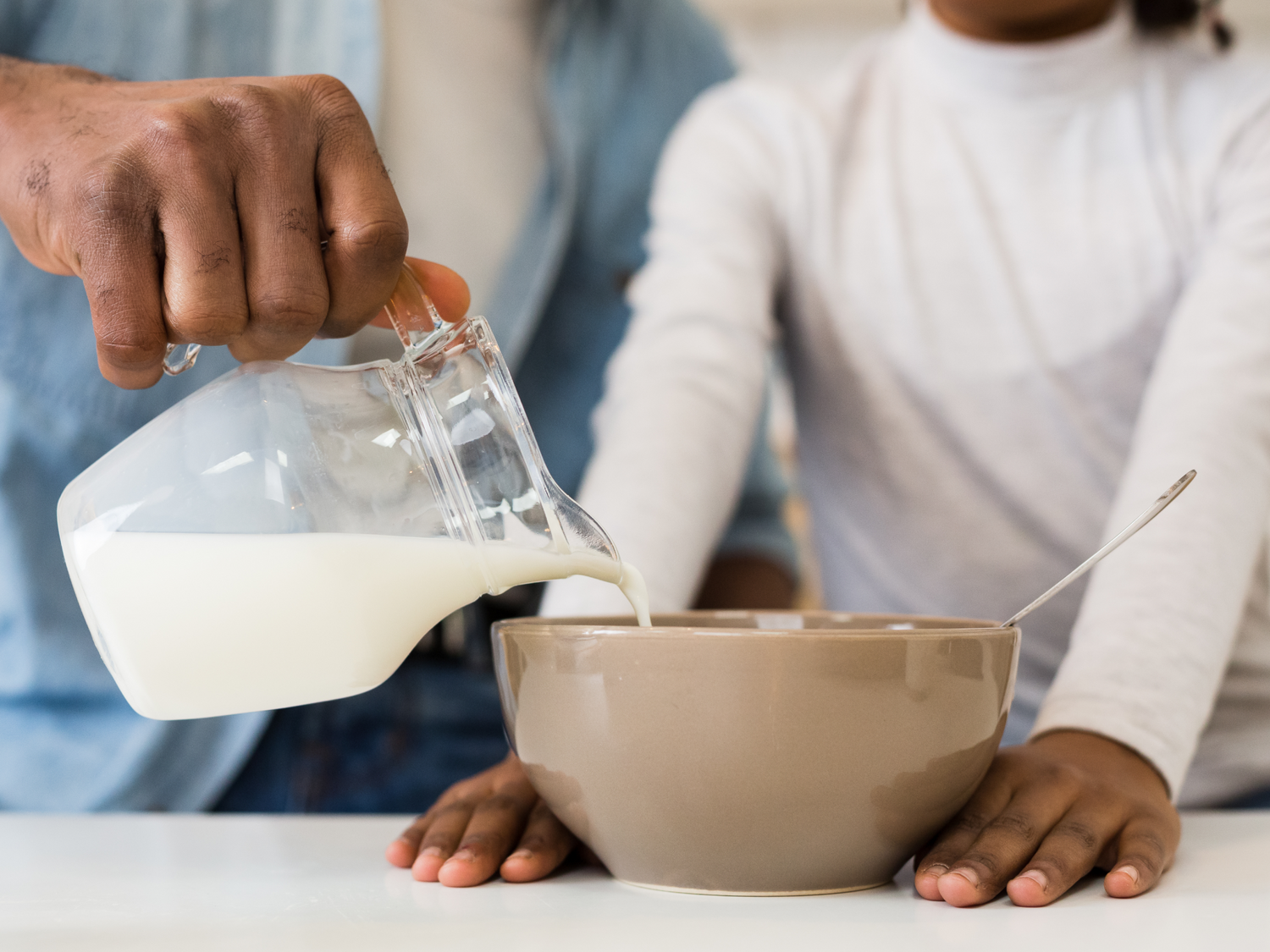It might sound a little cheesy but it’s true—here’s what you need to know
Odds are you were told to drink milk as a child so you could grow up big and strong, and that’s true—partially. Milk, cheese, yogurt, and other dairy products have many health benefits, especially when it comes to bone and heart health.
But it’s also true that dairy sometimes inhibits iron absorption and could put you at risk for iron deficiency anemia. Does that mean Santa Claus needs to find a different beverage to help wash down all those cookies?
Not necessarily, but if you’re someone who’s worried about their iron and/or hemoglobin levels there are a few things you should know.
How Does Dairy Impact Iron Absorption?
It’s important to note that this article will focus on dairy that comes from cow’s milk since that’s what most researchers use when looking at the effects of dairy on iron absorption.
Cow’s milk contains two types of protein: whey and casein, the latter of which is what gives cow’s milk its white color.
Some studies have found that casein sometimes binds to iron molecules in the body, which slows down iron absorption and could lead to iron deficiency anemia.
Does This Mean I Have to Stop Drinking Milk?
Here’s the good news: You don’t have to stop drinking cow’s milk or eating anything made from it, though reducing your intake may be a good idea if you’re at risk for iron deficiency anemia.
Most of the studies on this topic found that iron levels only dropped when people ate or drank an excessive amount of dairy. What does “excessive” mean? Well, that varies from person to person but one study found that a glass of cow’s milk with breakfast, lunch, and dinner did not drastically reduce iron levels, but again that may not be the case for some people.
Excess dairy intake can also lead to intestinal damage, which may result in blood loss that can decrease your hemoglobin and iron levels.
Genetics and certain immune disorders may impact how much dairy one person can ingest in a day. A physician or nutritionist will be able to help you determine if you need to cut back on your dairy intake.
It should also be noted that cow’s milk is not a good source of iron—one cup of whole milk only provides 0.1 milligrams of iron.
Use AnemoCheck Mobile To Fine Tune Your Diet
We want to reiterate that there’s no need to cut cow’s milk out of your life. Consumed in moderation, it can deliver vital vitamins and minerals—especially for growing children.
AnemoCheck Mobile allows you to instantly estimate your hemoglobin to give you a better idea of how the food you eat on a daily basis affects your blood health.
Click here to download AnemoCheck Mobile from the iOS and Android app stores.
References
Kibangou, I., Bouhallab, S., Henry, G. et al. Milk Proteins and Iron Absorption: Contrasting Effects of Different Caseinophosphopeptides. Pediatr Res 58, 731–734 (2005). https://doi.org/10.1203/01.PDR.0000180555.27710.46
Grinder-Pedersen L, Bukhave K, Jensen M, Højgaard L, Hansen M. Calcium from milk or calcium-fortified foods does not inhibit nonheme-iron absorption from a whole diet consumed over a 4-d period. Am J Clin Nutr. 2004;80(2):404-409. doi:10.1093/ajcn/80.2.404





Leave a comment
This site is protected by hCaptcha and the hCaptcha Privacy Policy and Terms of Service apply.